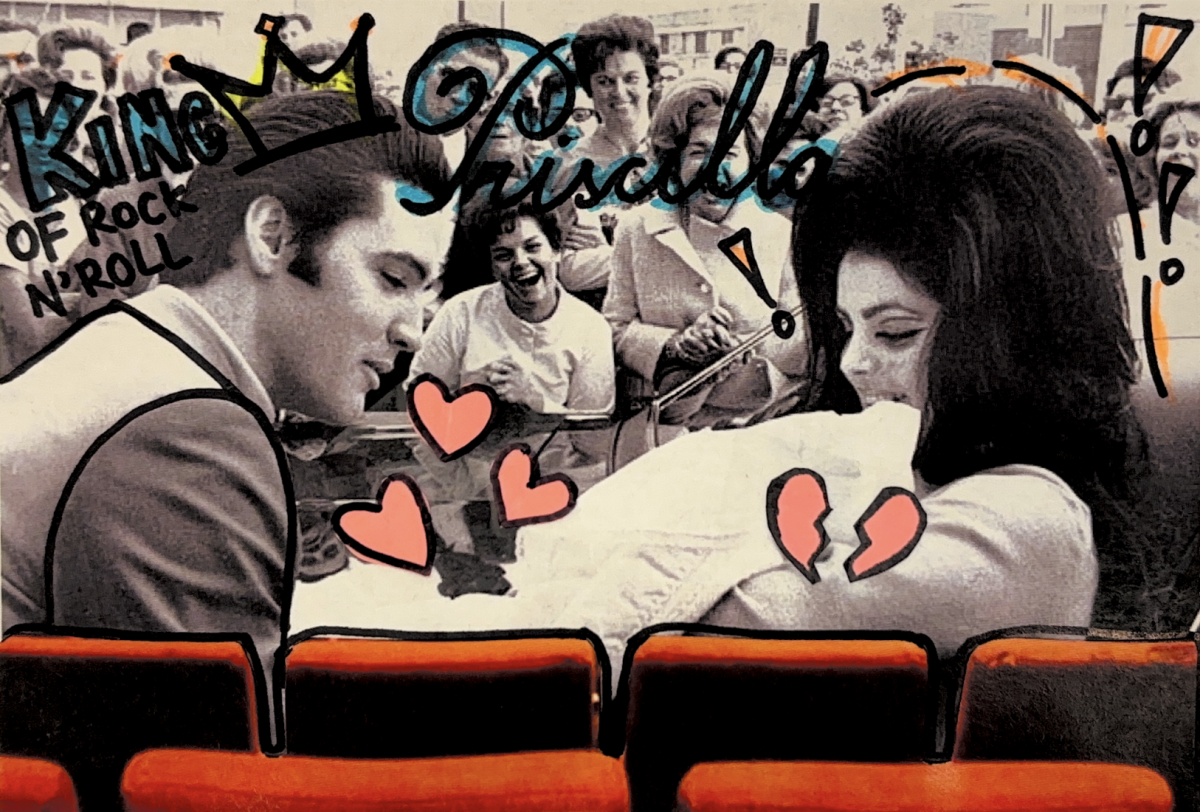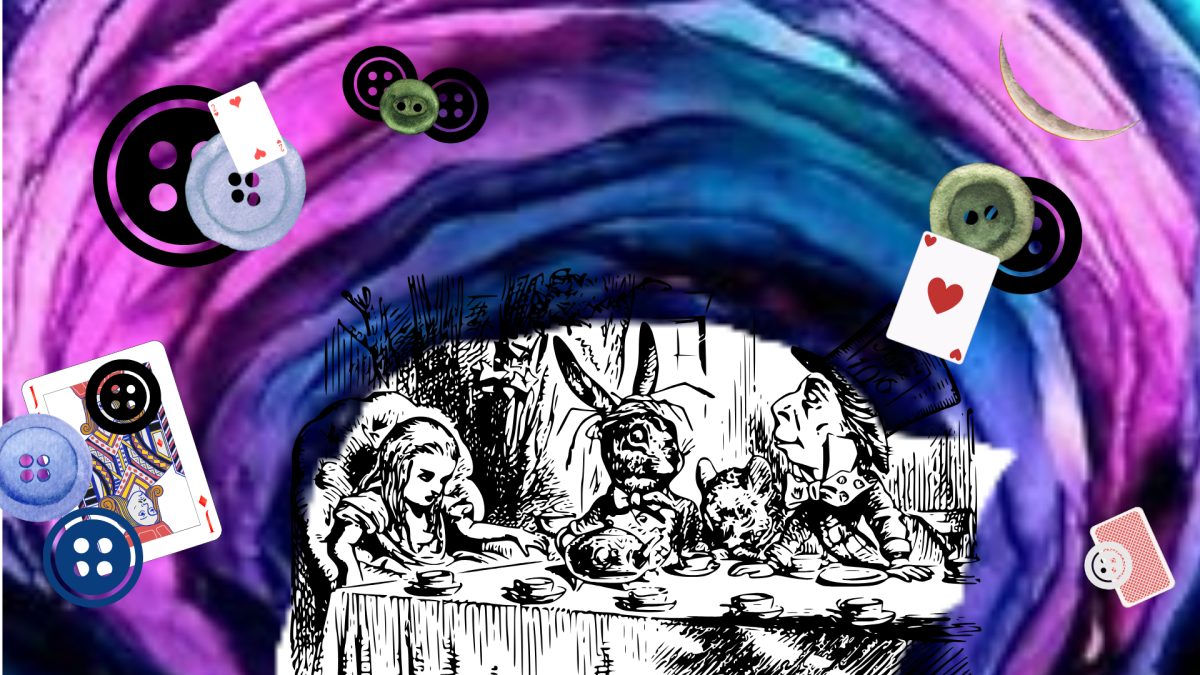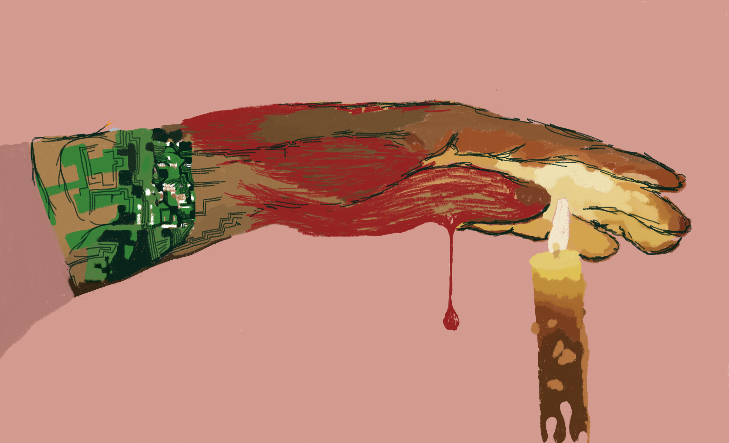Sofia Coppola’s “Priscilla” unveils the darker side of Elvis and Priscilla Presley’s love affair by way of a dreamy bubblegum-pink biopic that transports you to the ‘60s.
Adapted from Priscilla Presley’s 1985 book “Elvis and Me: The True Story of the Love Between Priscilla Presley and the King of Rock N’ Roll,” Coppola’s production tells Priscilla’s account of the couple’s relationship from when they met in 1959 to when they separated in 1972.
Elvis met Priscilla when she was 14 and he was 24, so the courtship between Elvis and Priscilla has always been controversial in the public eye.
The movie portrays the dynamic between the two with great complexity, enhanced by the chemistry between Cailee Spaeny and Jacob Elordi, who play Priscilla and Elvis respectively.
Spaeny depicts Priscilla from the age of 14 to 27 and does so with versatility. Physically and emotionally, the character’s progression is tenable throughout the film.
The contrast between the naive and lovestruck school girl in the beginning and the woman who simply couldn’t bear to remain in the relationship in the end is portrayed so palpably — crediting Coppola’s decision to cast the Priscilla Presley-endorsed Spaeny in the titular role.
Elordi also portrays a convincing Elvis. Elordi adeptly shows the disparity and disconnectedness between the character’s nature before and after becoming dependent on drugs. The duality of the character brought to life by Elordi moved the plot through the progression of the film and the couple’s relationship, making “Priscilla” a fast-paced biopic rather than a play-by-play of the ill-reputed couple’s relationship.
While Spaeny and Elordi both individually and collaboratively bring the two characters to life on screen through their talent, a physical aspect aids them as well — height.
Spaeny is 5-foot-1 while Elordi stands at 6-foot-5, making for a physical barrier between the two that aids the emotional barrier that develops throughout the film and ultimately climaxes at the point in which Priscilla tells Elvis that she’s ending their relationship. Towering over Spaeny in most scenes, Elordi’s height enhances the controlling nature of the relationship that Coppola attempts to show.
Always impeccably dressed, the couple is never seen with a hair out of place or a false eyelash off. Even before Priscilla gives birth to her daughter, she puts on false eyelashes, a full face of makeup and heels.
This seemingly picturesque image the couple put forward to outsiders is debunked by Elordi’s depiction of Elvis’ behavior and control over Priscilla.
Scenes between the two progress from being sweet to bordering on abusive. From heart-eyes to thrown chairs, the disparity between the situation at the start and at the end is distinguished.
Coppola’s cinematographic genius is on display throughout the film but nowhere more so than in a scene at the dining table, where Priscilla sits next to Elvis surrounded by his friends. Having finally been reunited with the man she’s been dying to see since he left for Hollywood, she tries to appreciate the moment but fails to.
The camera remains on Spaeny for a significant length of time, the chatter of the dinner table disappearing while the focus on the character is exemplified. The apprehensive nature of the character is portrayed excellently by Spaney, who subtly and skillfully depicts Priscilla’s disquieted aura at this point in the couple’s relationship.
Between the acting and the cinematographic choices, this scene rings more memorable than most others in the film and for good reason. It serves as a sort of climactic point in the biopic and the couple’s relationship as a whole.
Contrasting Baz Luhrmann’s Oscar-nominated 2022 biopic of the star, Coppola’s adaptation proves controversial among Elvis supporters — his late daughter and estate included. Prior to her death in January, Lisa Marie Presley, Elvis and Priscilla’s only daughter, spoke out against Coppola’s script.
Calling the script “vengeful and contemptuous,” Presley reached out to the director to discuss her perspectives on the portrayal of her father. Coppola maintained that the film depicted both characters fairly, and said she was taking great care to honor Priscilla and portray Elvis with “sensitivity and complexity,” Variety reported.
Between the skillful acting of Spaeny and Elordi and the masterful direction of Sofia Coppola, “Priscilla” beautifully illustrates the titular character’s recount of her relationship with the King of rock ‘n’ roll and appears to have solidified itself as one of A24’s classics.














